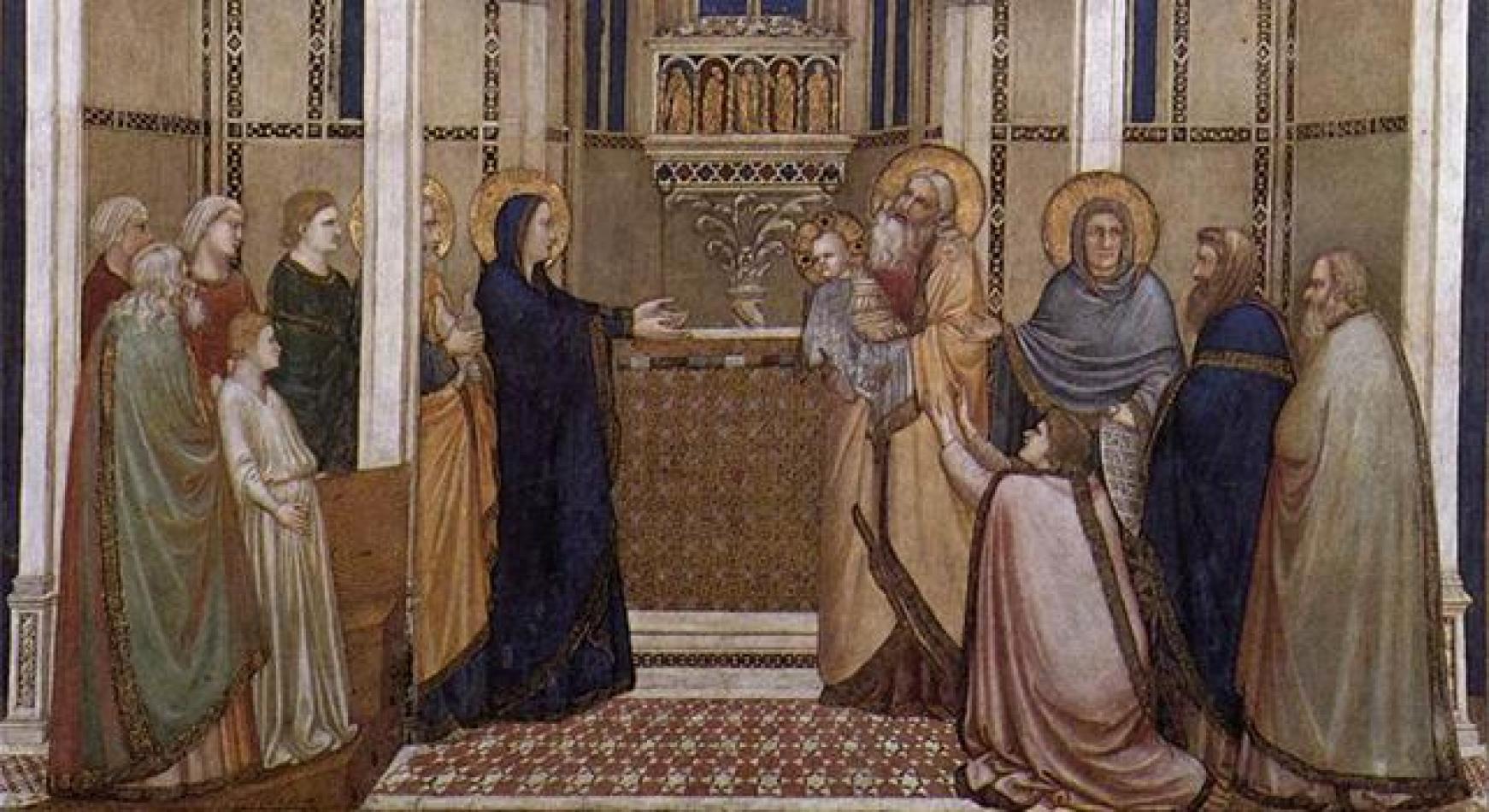Daniel Comboni
Comboni Missionaries
Institutional area
Other links
Newsletter
In today’s Gospel, there is a question posed three times: “What shall we do?” (Lk 3:10, 12, 14). It is raised to John the Baptist by three categories of people: First, the crowd in general; second, the publicans or tax collectors; and, third, some soldiers. Each of these groups questions the prophet on what must be done to implement the conversion that he is preaching. John’s reply to the question of the crowd is sharing essential goods. He told the first group, the crowd, to share basic necessities, and therefore says: “He who has two coats, let him share with him who has none; and he who has food, let him do likewise”...
To share tears in order to be able to share a smile
Pope Francis
In today’s Gospel, there is a question posed three times: “What shall we do?” (Lk 3:10, 12, 14). It is raised to John the Baptist by three categories of people: First, the crowd in general; second, the publicans or tax collectors; and, third, some soldiers. Each of these groups questions the prophet on what must be done to implement the conversion that he is preaching. John’s reply to the question of the crowd is sharing essential goods. He told the first group, the crowd, to share basic necessities, and therefore says: “He who has two coats, let him share with him who has none; and he who has food, let him do likewise” (v. 11). Then, he tells the second group, the tax collectors, to collect no more than the amount owed. What does this mean? No taking ‘bribes’, John the Baptist is clear. And he tells the third group, the soldiers, not to extort anything from anyone and to be content with their wages (cf. v. 14). There are three answers to the three questions of these groups. Three answers for an identical path of repentance, which is manifested in concrete commitments to justice and solidarity. It is the path that Jesus points to in all his preaching: the path of diligent love for neighbour.
From John the Baptist’s admonitions, we understand the general tendencies of those who at that time held power, in various forms. Things have not changed very much. However, no category of people is excluded from following the path of repentance to obtain salvation, not even the tax collectors, considered sinners by definition: not even they are excluded from salvation. God does not preclude anyone from the opportunity to be saved. He is — so to speak — anxious to show mercy, to show it towards everyone, and to welcome each one into the tender embrace of reconciliation and forgiveness.
We feel that this question — “What shall we do?” — is ours also. Today’s liturgy tells us, in the words of John, that it is necessary to repent, to change direction and take the path of justice, solidarity, sobriety: these are the essential values of a fully human and genuinely Christian life. Repent! It sums up the message of the Baptist. And the Liturgy of this Third Sunday of Advent helps us to rediscover a special dimension of repentance: joy. Whoever repents and approaches the Lord, feels joy. The prophet Zephaniah says to us today: “Sing aloud, O daughter of Zion!”, addressing Jerusalem (Zeph 3:14); and the apostle Paul exhorts the Christians of Philippi: “Rejoice in the Lord always” (Phil 4:4). Today, it takes courage to speak of joy, which, above all, requires faith! The world is beset by many problems, the future is burdened by uncertainties and fears. Yet, Christians are a joyful people, and their joy is not something superficial and ephemeral, but deep and stable, because it is a gift from the Lord that fills life. Our joy comes from the certainty that “the Lord is at hand” (Phil 4:5): he is close with his tenderness, his mercy, his forgiveness and his love.
May the Virgin Mary help us to strengthen our faith, so that we are able to welcome the God of joy, the God of mercy, who always wants to live in the midst of his children. May our Mother teach us to share tears with those who weep, in order to be able to also share a smile.
Angelus 13.12.2015
“REJOICE ALWAYS”
Fr. Raniero Cantalamessa
Zephaniah 3:14-18; Philippians 4:4-7; Luke 3:10-18
The third Sunday of Advent is pervaded by the theme of joy. This Sunday is traditionally called “Laetare” Sunday, that is, the Sunday of “rejoicing,” from the words of St. Paul in the second reading: “Rejoice in the Lord always; I say again, rejoice.”
In the first reading we hear the words of the prophet Zephaniah: “Rejoice, O daughter Zion! Sing joyfully, O Israel! Be glad and exult with all your heart, O daughter Jerusalem!” In the responsorial psalm this extraordinary vocabulary of joy is enriched with still other terms: “My strength and my courage is the Lord, and he has been my salvation. With joy you will draw water at the fountain of salvation. … Shout with exultation, O city of Zion.”
Let us remain for a while with this word. (The Gospel passage continues the message of John the Baptist that we commented on last Sunday.) In the poem “Il sabato del villaggio” (“The village sabbath”) Giacomo Leopardi has expressed the idea that in the present life the only authentic and possible joy is the joy of expectation, the joy of the sabbath. It is a “day full of hope and joy,” full of joy precisely because it is full of hope. The expectation of the feast is better than the feast itself.
The possession of the good that was longed for brings nothing but disillusionment and boredom, because every finite good reveals itself to be inferior to what was desired and is tiresome; only expectation is the bearer of living joy. But this is precisely what Christian joy is in this world: the joy of the sabbath, the prelude to the Sunday without end, which is eternal life. St. Paul says that Christians must be “joyful in hope” (Romans 12:12), which does not mean that we must “hope to be happy” (after death), but that we must be “joyful in hope,” already happy now by the simple fact of hoping.
The Apostle does not limit himself only to the command to rejoice; he also indicates how a community that wants to bear witness to joy and make it credible to others must conduct itself. He says: “Your affability should be known by all men.”
The Greek word that we translate as “affability” signifies a whole complex of attitudes that runs from clemency to the capacity to know how to believe and to show oneself to be lovable, tolerant, and hospitable. We could translate it with the word “kindness.” It is necessary that we first of all rediscover the human value of this virtue. Kindness is a virtue which is at risk, or, more exactly, it is a virtue that is extinct in the society in which we live.
Gratuitous violence in films and on television, language that is intentionally vulgar, the competition to go beyond the limits in regard to brutality and explicit sex is making us used to every expression of ugliness and vulgarity.
Kindness is a balm in human relationships. Family life would be so much better if there were more kindness in our gestures, in our words, and above all, in the sentiments of our hearts. Nothing extinguishes the joy of being together more than a certain vileness in our behavior. “A kind answer,” says Scripture, “calms wrath, but a barbed one brings ire” (Proverbs 15:14). “A kind mouth multiplies friends, and gracious lips prompt friendly greetings” (Sirach 6:5). A kind person generates fond feelings and admiration wherever he goes.
Alongside this human value we must also rediscover the Gospel value of kindness. In the Bible the terms “meek” and “mild” do not have the passive sense of “subjected,” “repressed,” but the active sense of a person who acts with respect, courtesy, clemency toward others.
Kindness is indispensable above all for those who want to help others find Christ. The Apostle Peter recommends to the first Christians to be “ready to give a reason for their hope,” but adds immediately: “But this must be done with sweetness and respect” (1 Peter 3:15 ff), which is to say, with kindness.





